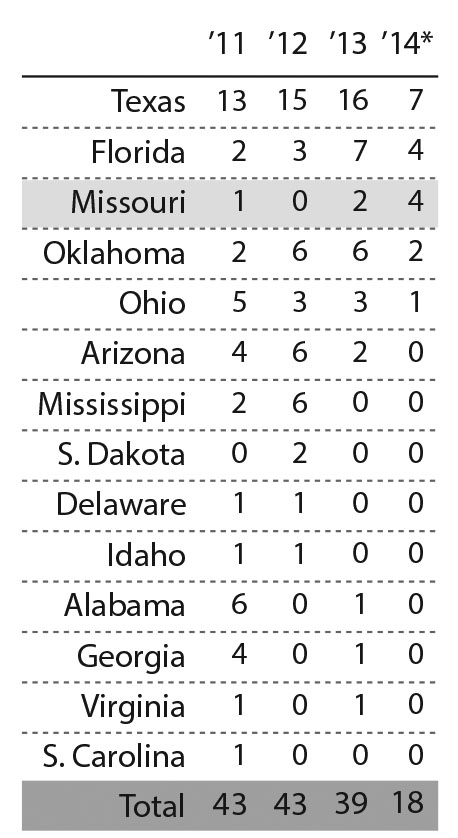
by Zenobia Harris
Who gets the death penalty? When is a crime considered punishable by death? What are the exceptions? These are just a few questions that come to mind when exploring the dark and mysterious details surrounding the death penalty.
There is much debate among Americans as to when and if the death penalty should still be used. After all, killing someone for committing a crime—no matter how heinous the act—is still killing. In many states the death penalty is rarely ever used, and in other states like Michigan, New Jersey and Hawaii it is practically non-existent.
The U.S. Federal Death Penalty Act of 1994 says that the death penalty can be applied under the following three categories: homicidal offenses, espionage and treason, and non-homicidal narcotic offenses. Of course, any offense that is considered punishable by death falls under those three categories. The most punishable offense is murder, but the stipulations for what is considered murder are so loosely defined that it varies from state to state.
In some cases, such as the case of Kelly Gissendaner from Georgia, a person can be put to death without actually killing someone. Being affiliated with a murder or even accidentally killing someone can lead to the death penalty in some states.
Georgia is one of about 32 states that does have the death penalty. Kelly Gissendaner, a Georgia woman who was sentenced to death in the late ‘90s after assisting in the murder of her husband, will be the second woman in the history of Georgia to receive the death penalty.
Gissendaner, who didn’t physically commit any acts of murder, was sentenced to death while her lover, Gregory Owen, who actually killed Kelly’s husband, received life in prison without parole for 25 years. While it’s not okay to be an advocate for ruthless criminals, fair trial and reasonable sentencing is something that many people can support.
Since her conviction, Gissendaner has worked to turn her life around and has even gotten a degree in theology while in prison. Thousands of people have petitioned to get her off of death row, but not much has changed except for the postponing of her death because of a problem with the lethal concoction that’s being used in her execution.
Gissendaner may have deserved life in prison, but it seemed highly unlikely that she would receive the death penalty for facilitating murder while her lover only received life in prison for actually committing the crime.
The case certainly highlights some flaws with the use of the death penalty and defining the situations in which it should be used.
Even if a state doesn’t allow the death penalty, the U.S. government can still seek the death penalty for crimes that may threaten national security, such as the Boston bombing case in 2013, for example.
While the death penalty’s loose guidelines and regulations may lead to a better, more flexible interpretation of the law in some situations—as all cases are not the same—it makes it easier for other cases to be tried unequally and unfairly. If nothing else is taken away from the buzz that the Kelly Gissendaner case is attracting, it’s the importance of judging fairly and applying just punishments for all parties involved in a crime, especially when the death penalty may be involved.
 The Spectator The independent student newspaper of Valdosta State University
The Spectator The independent student newspaper of Valdosta State University






